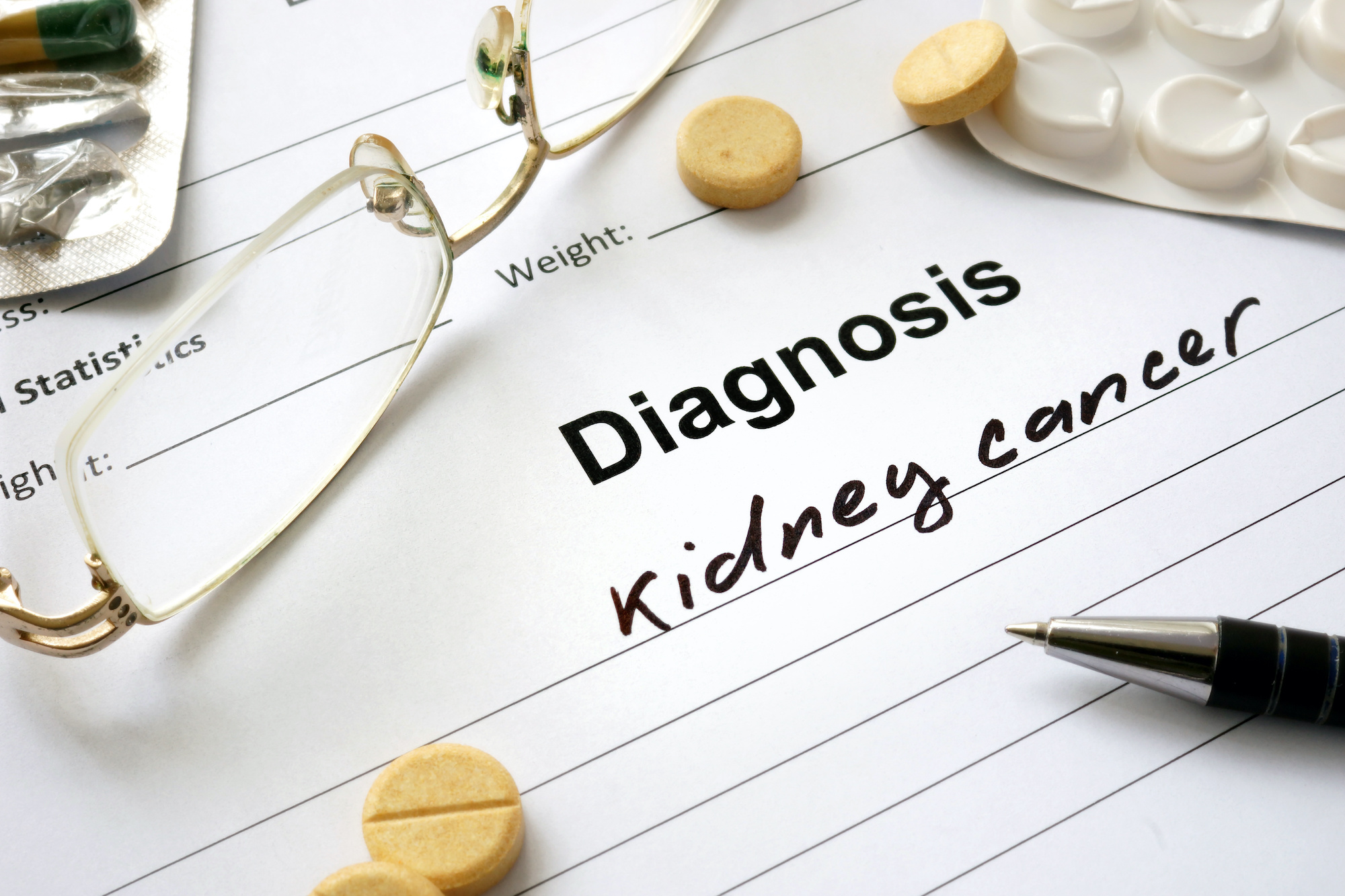At KCUC Urology and Oncology, we specialize in urology and cancer care. We treat many cases of kidney cancer every year and we combine the best doctors with the latest technology to provide our patients with the very best care. While anyone can get kidney cancer, it is more common among older people, most often occurring in people over the age of 50, although it does occur in children. Men are more likely to get kidney cancer than women and it also occurs more often among Caucasian than African American. No matter who you are, you’re in good hands at KCUC.
Types of Kidney Cancer
There are two different types of kidney cancer – RCC and TCC. The first kind, RCC (which stands for renal cell cancer) starts in the outer parts of the kidney. TCC (which stands for transitional cell carcinoma) occurs within the inner lining of the kidney called the renal pelvis. Because it starts on the lining it is referred to as urothelial cancer. RCC is more common than TCC. The good news is, kidney cancer is often discovered in early stages when it is small and still confined to the kidney. Like most cancers, RCC and TCC are treatable and often curable when caught early. There is one other kind of cancer that can be found in the kidney called a Wilms tumor, but it is not considered “kidney” cancer and has different stages than kidney cancer.
What Are the Stages of Kidney Cancer?
Kidney Cancer can be found in one of four stages. The stages describe how advanced and how aggressive the cancer is. Earlier stages have a better prognosis.
- Stage 1: the tumor is 7 centimeters or less in size and confined to the kidney
- Stage 2: the tumor is larger than 7 centimeters but still confined to the kidney
- Stage 3: the tumor has spread through the capsule of the kidney or to nearby lymph nodes
- Stage 4: the tumor has spread to other areas of the body including liver, lungs, bone and/or brain
Kidney cancers are often discovered early after a urine sample tests positive for blood, or a scan like a CT, MRI, or ultrasound, reveals something suspicious.
Symptoms Can Be Subtle or Non-Existent
TCC kidney cancer may be caught early if blood is detected in the urine, but RCC kidney cancer usually has no early symptoms. Later symptoms may include:
- A mass in your abdominal area
- Fever
- Pain in your side or lower back
- Swelling in your legs and ankles
- Ongoing fatigue and rapid weight loss
- High blood pressure (seen in some rare kidney cancers)
How Is Kidney Cancer Diagnosed?
Your doctor will start with a thorough medical history and physical exam. They may also order additional imaging and lab tests. Common tests include:
- Urinalysis
- Blood tests
- CT Scan
- MRI
- Ultrasound
- Chest CT or X-ray (to see if cancer has spread to the lungs)
- Bone scan and/or X-ray (to see if cancer has spread to the bones)
- Needle biopsy of the mass (usually the diagnosis usually can be made based on the CT or MRI findings)
Risk Factors for Kidney Cancer
The more common risk factors associated with kidney cancer include:
- Family history
- Obesity
- High blood pressure
- Smoking (more with TCC than RCC)
- Age, sex and race (African Americans and male patients over 60 are at higher risk)
- Exposure to substances (asbestos or certain dyes and paints)
- Long term hemodialysis
- Genetic disorders (Von Hippel-Lindau disease or Tuberous Sclerosis)
Treatment Options for Kidney Cancer
Your course of treatment will depend on your prognosis, your age, and your overall health. At KCUC, we have many options available. If surgery is the option your urologist chooses, it can be performed laparoscopically (with only small incisions) using our da Vinci robot. Robotic surgery results in less pain, smaller scars, and a faster recovery compared to traditional open surgery.
- Surgery – Surgery is the standard treatment for kidney cancer. There are two basic types of kidney surgery:
Partial Nephrectomy: Removing the part of the kidney where the tumor is found preserving as much normal kidney tissue as possible. Studies have shown that this is as effective as a radical nephrectomy with early stage kidney cancer.
Radical Nephrectomy: total removal of the kidney, nearby adrenal gland and lymph nodes
- Cryosurgery – Cancer cells are frozen to destroy them. This is usually coordinated with interventional radiology.
- Radio-frequency Ablation – Instead of freezing, cancer cells are heated to destroy them. Also done in coordination with interventional radiology.
- Radiation therapy – Radiation uses high energy X-rays to destroy cancer cells and shrink tumors; usually this is not curative and is used to reduce pain if cancer has spread to the bones.
- Immunotherapy – Immunotherapy is a systemic therapy similar to chemotherapy that uses medication to boost the immune system so it can fight cancer.
- Chemotherapy – Chemotherapy uses medications to treat cancer cells that have spread throughout the body.

